
Blog
Secret of Success: Think of Family | by: Jonathan Pascual
Jonathan Pascual, founder and owner of Taproom Coffee in Kirkwood || Outlander Photography
My son Ransom was born while we were renovating Taproom’s commercial space back in 2013. With his arrival, we became a home of two stay-at-home-parents, four young kids, and a “business baby” on the way. I knew then what my priorities were in starting my shop: Get things sustainable, and be a loving husband and father.
As I worked at getting Taproom off the ground, I always had this ideal dream in my mind: I’d come into the shop early in the morning before sunrise, fire up the machines and make myself a cup of coffee while setting up the bar. I’d maybe watch the sunrise slowly brighten the cafe and have conversations with customers as they came in and out, or even sit and chat if they were hanging out a while. I’d serve lattes and espressos and hand out croissants and bagels during crazy rushes, and then wind down and do some administrative work before kicking out in the afternoon and going home to help my kids with homework. I’d have a great staff I could trust to take care of the store and serve our regular customers, even on nights and weekends when I wasn’t there. That was the dream. And three years in - I’m proud to say - that’s become the reality.
“ I knew then what my priorities were in starting my shop: Get things sustainable, and be a loving husband and father.”
It hasn’t been easy. We had our fair share of trouble from the start - from zoning and permit issues, to an over-budget build out, to untimely employee turnover. Starting any small business is hard work, and Taproom was no exception. But I think a secret to our success has been that our business has always been about the people and about fostering community, using coffee and beer only as means to an end. We’ve worked hard at building a foundation of solid business principles and high-quality products and service, always within the context of building community and quality relationships.
I always prioritized family, and I think that’s what made it work. I pictured the Kirkwood families that would walk through Taproom’s doors as customers, and thought through what would have to be done to serve them well, with excellence. And I pictured my own family, and thought through what it would take to not only pay the bills but also free up my personal time so that I could be present during my kids’ childhood.
“But I think a secret to our success has been that our business has always been about the people and about fostering community”
Blume Photography
Something people ask me a lot is if there will be a “Taproom 2”. Right now, the answer is no. I like the balance I get to have with work and home. Yes, Taproom is doing great and it would be a fun challenge to start another location. But the truth is that it would take away from my priority of family - even for a little while - and that just doesn’t sit well with me. For now, we’re going to focus on keeping our “business baby” healthy, and to maintain that great balance with home life.
God’s been good to us. And even if it hadn’t worked out with the business, he’d still be good. I’m thankful for the ways he’s refined and grown me in the process of small business ownership, allowing me to love my family well and to serve other families well. And even if it were all lost tomorrow, it’d still be worth it.
- Jonathan Pascual
Outlander Photography
Q&A with Jonathan Pascual
1. When you mentioned starting Taproom, you said you had a "fair share of troubles", do you have a piece of encouragement or advice for someone who is running into similar issues trying to get their own business off the ground?
Two things: (1) Write a business plan. It's the life and death of your business. The exercise of thinking through every single aspect of your business will help you organize well and plan for possible hiccups. (2) Picture your end goal. It's like I already shared - visualize what you want your business to look like and what your personal involvement would ideally be, and remind yourself of that picture constantly until it actually happens.
2. In balancing family and work, what has been helpful for you to find this balance?
Learning how to say no. It may be a question of working overtime, taking on more debt, expanding the business, taking a work call while at home, etc. I might not always have the option to say no. But when I can choose family over work and it's not going to put me out of business, I've learned I have to put family first.
3. You mentioned Taproom being a place to foster community. Was this the main motivation in opening a neighborhood coffee shop or what lead you to open Taproom? (And we are so happy you did!!)
Fostering community is certainly a noble motivation. But honestly, I just started out like so many other people thinking it was a stinkin' cool idea if one day I could own my own coffee shop.
4. What are you most excited about for the future of Taproom?
I'm excited for when the business is healthy enough to pay every one of my baristas sustainable wages on which they could all support themselves and a family if they have one. We're already making strides towards that - I have one salaried manager, I've been able to do modest hourly pay increases across the board, and within the next year I've promised my staff I'll work towards health insurance stipends and even some travel perks for full-time employees.
"I bought a Fixer Upper and Lived to Tell About it" - Carmen Coe
My hubby and I love the city. We are drawn to big and little downtown areas. We love density & diversity. We adore walkability. We’d rather move our family of 6 into a 900 square foot apartment in the city than a sprawling 3,000 square foot suburban house any day! So yes, location is a top priority for us.
But affording the city location is a whole other issue altogether. We spent every Sunday afternoon for a year driving around Atlanta, exploring new neighborhoods, popping into open houses, talking to the locals, trying new restaurants & researching public school options. Several areas rose to the top but we quickly realized that we would have to buy a home that needed some TLC in order to live where we wanted to live.
“We spent every Sunday afternoon for a year driving around Atlanta, exploring new neighborhoods”
If you can believe it, in 2014 we purchased a 96-year old house in midtown Atlanta for $285,000 with a construction loan. The house was listed as a 3/2 but the layout was horrible, and some rooms were crumbling.
Front Exterior Before
Back Exterior - Before
The foundation fixes (which the mention of the word seems to scare people off) only cost us around $6000. The bigger issue was the weight of non-permitted additions that were literally pulling the roof joists apart. So we had to demo the back 1/3 of the house. Ouch! But from the ashes we were able to re-imagine the kitchen and backyard and even decided mid-stream to dig out a basement under the new side of the house!
“from the ashes we were able to re-imagine the kitchen and backyard”
Kitchen and Second Story Master addition | In Progress
This house had me at hello. The location, original pocket doors, door hardware, built-ins, are the reason I fell for this place. The new open kitchen /living room, master en suite, and backyard are filled with light and exactly built to my tastes. In my opinion, buying a fixer upper is the best of both worlds; Honoring the stories that have come before me and laying new foundations for the future. Anytime I walk a client into a home that needs TLC, I will almost always see potential. It’s not as scary as you think!
-Carmen Coe
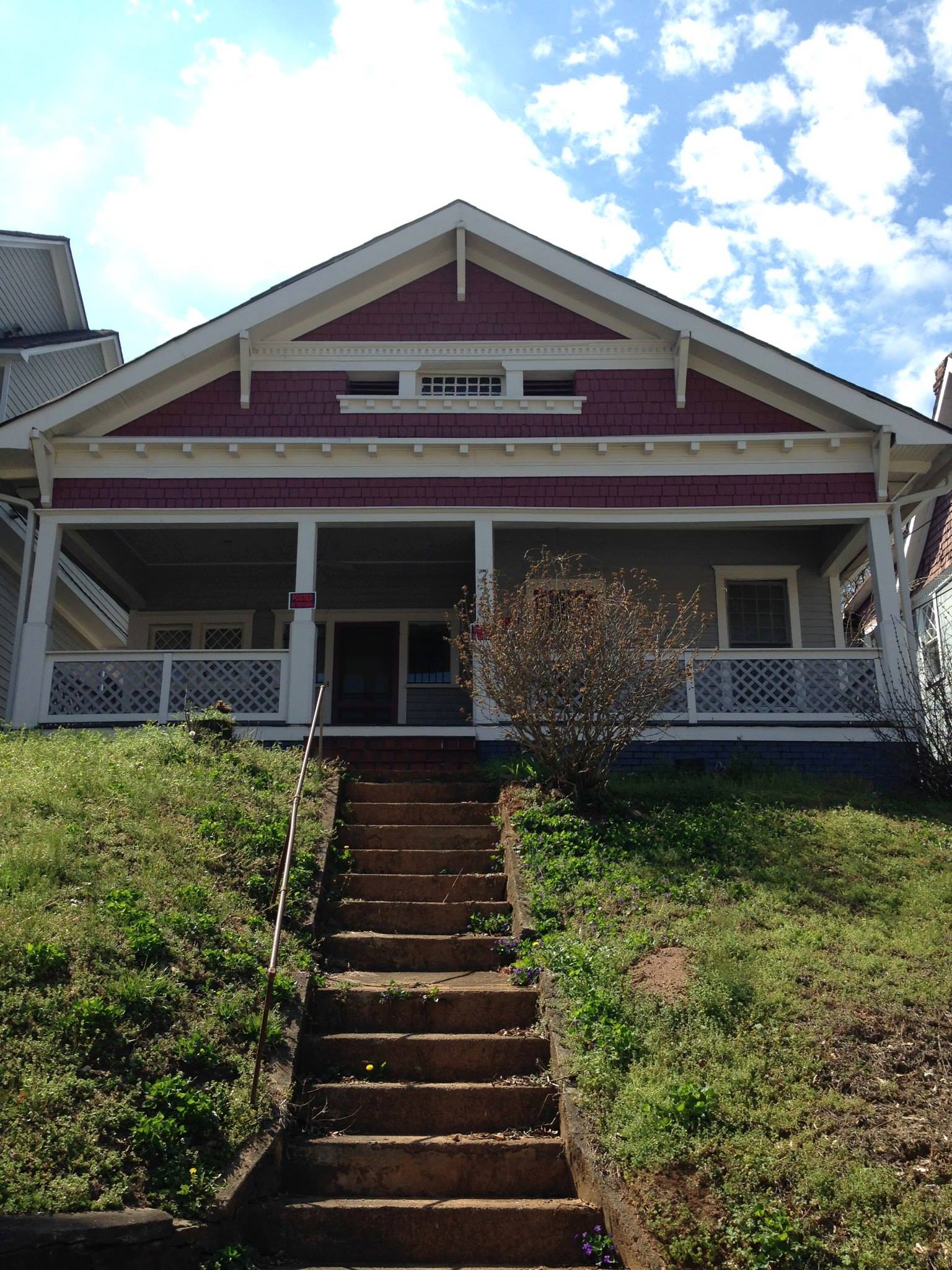
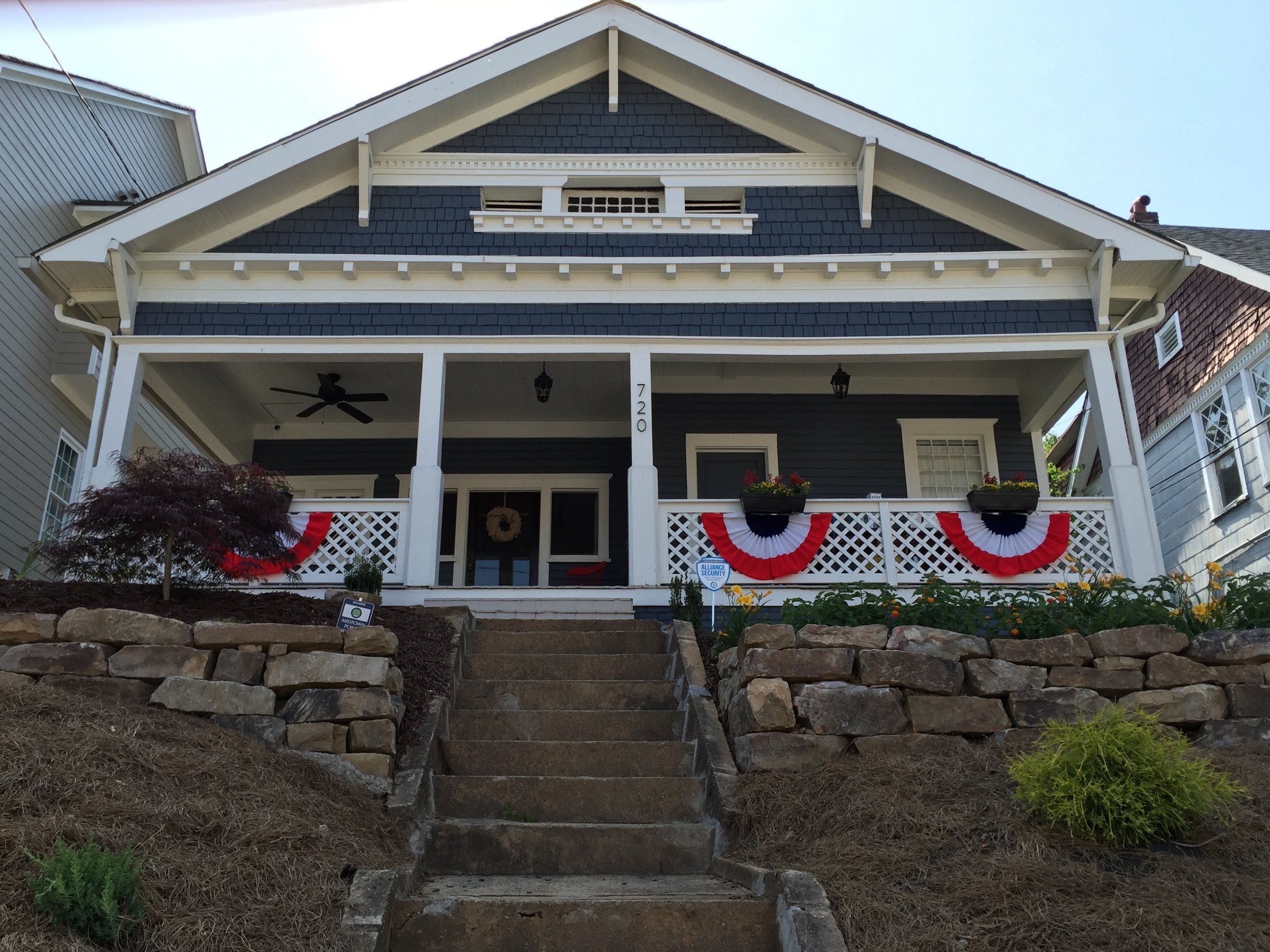
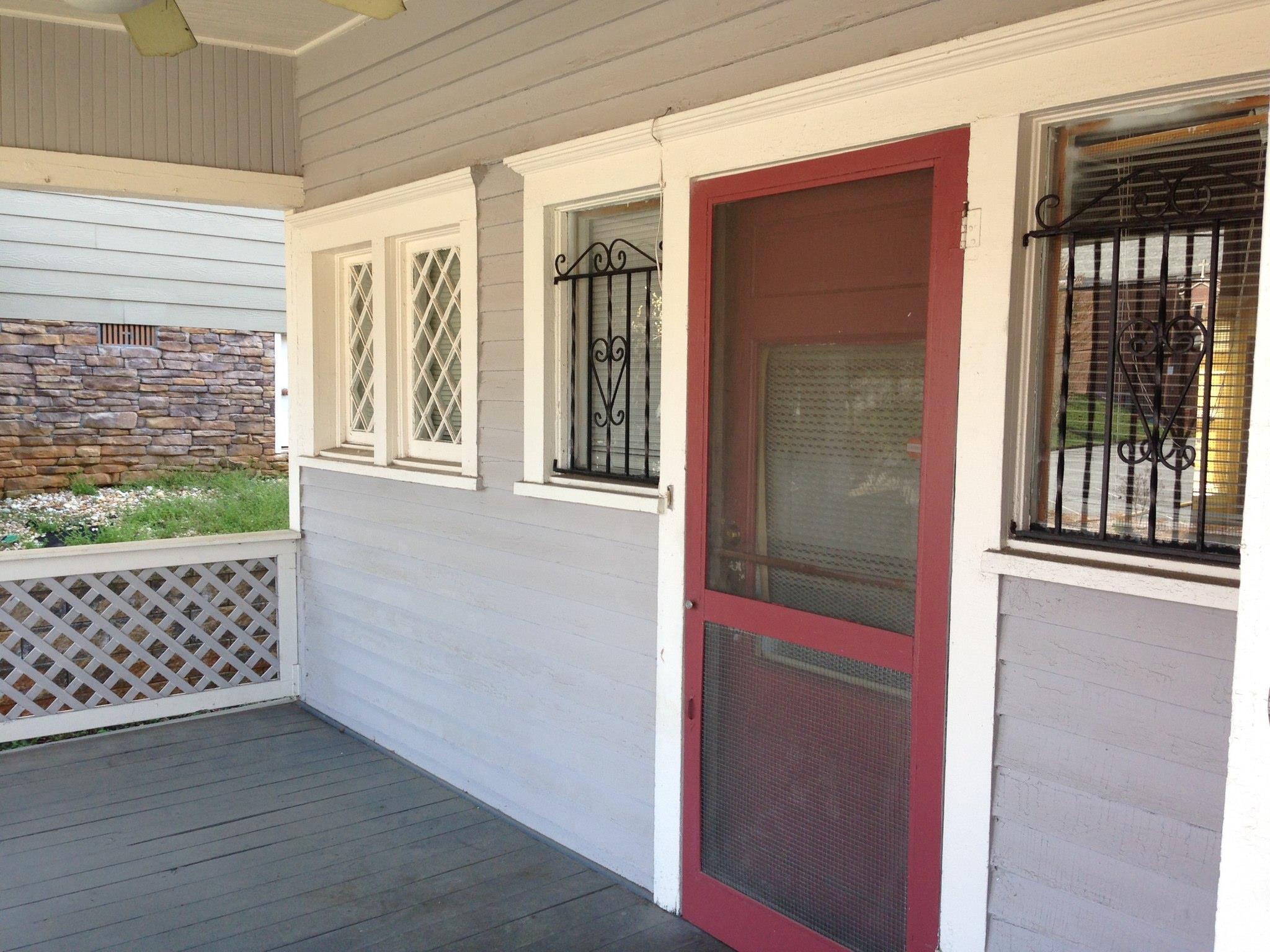
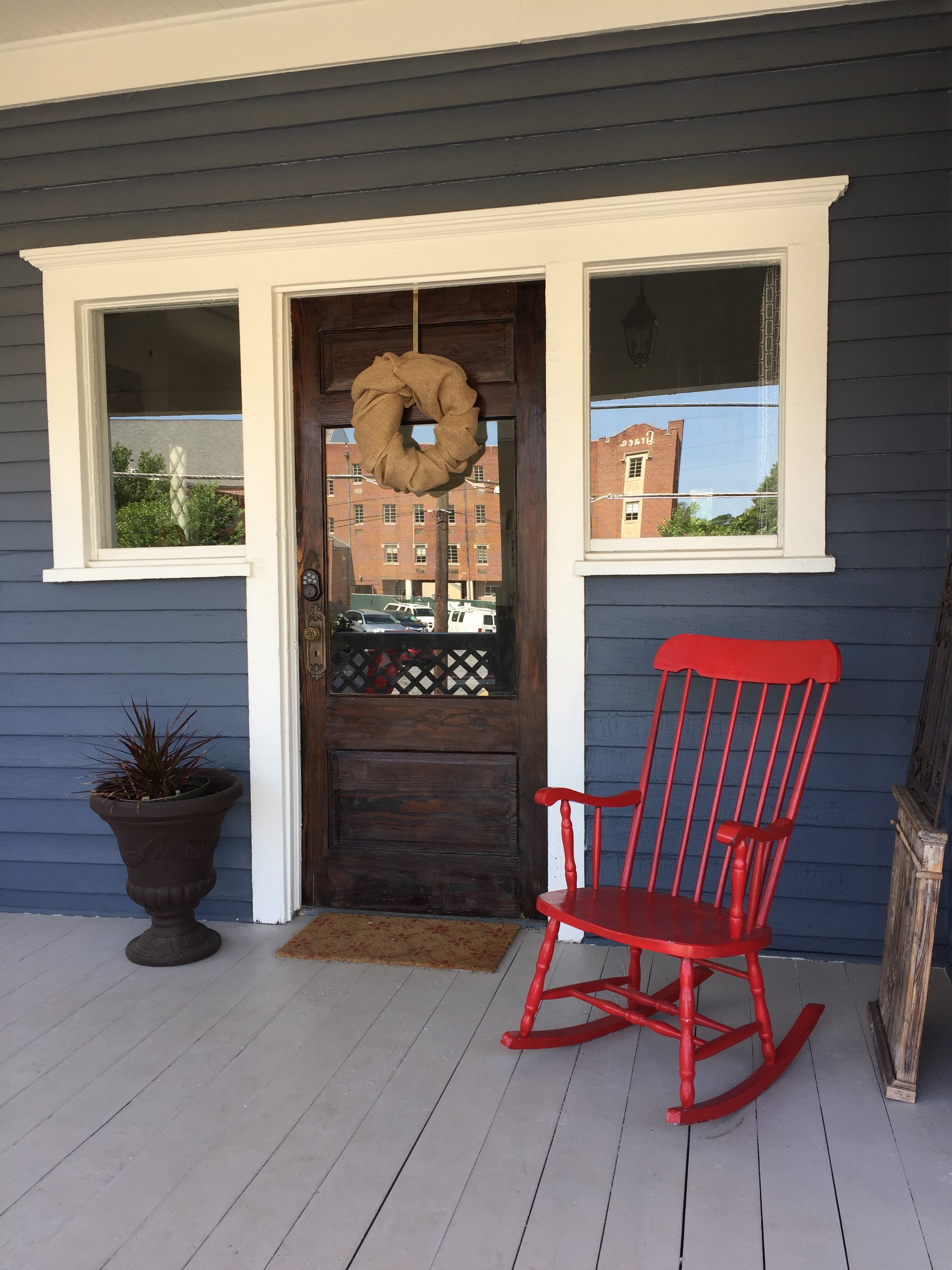
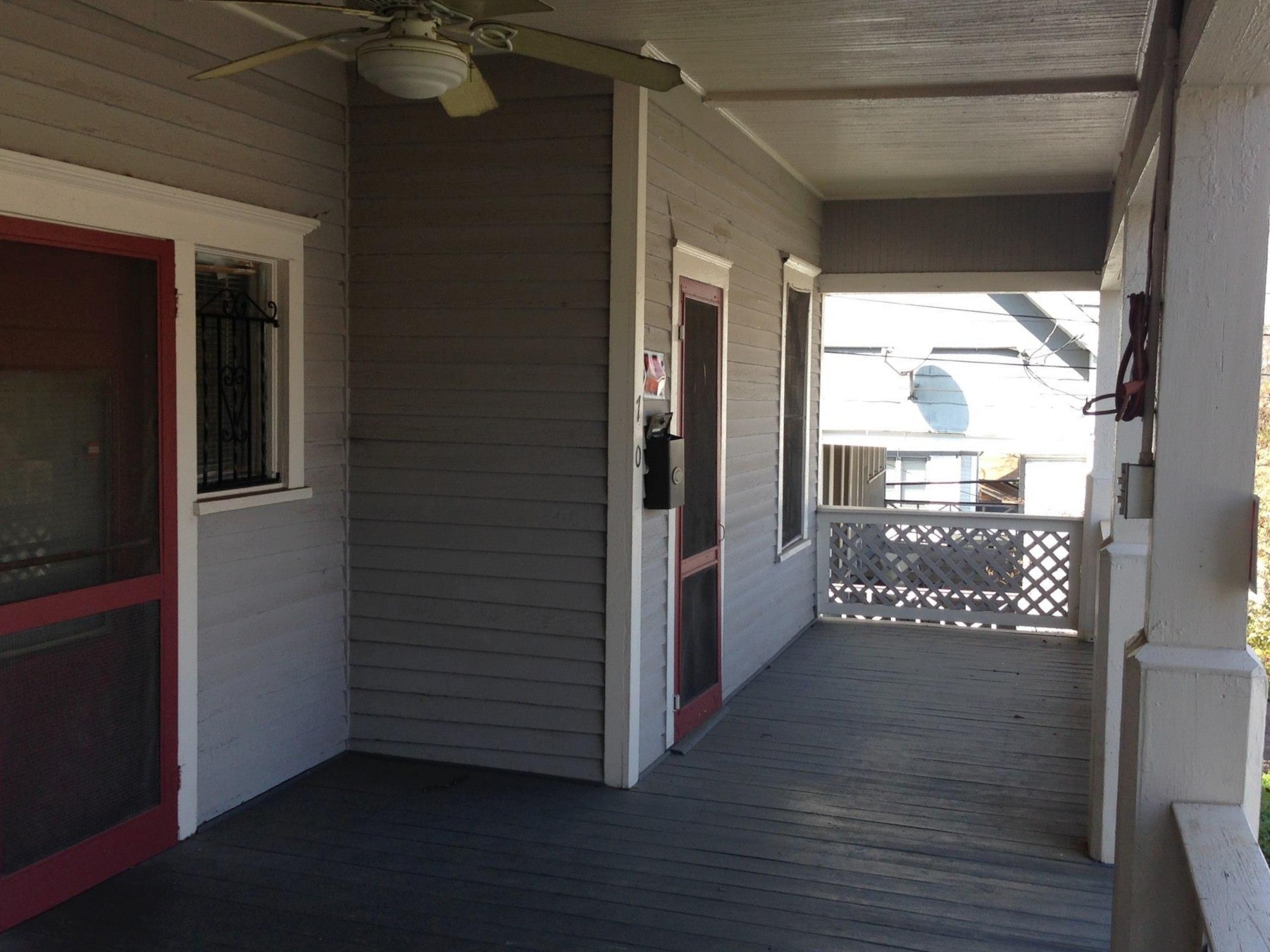
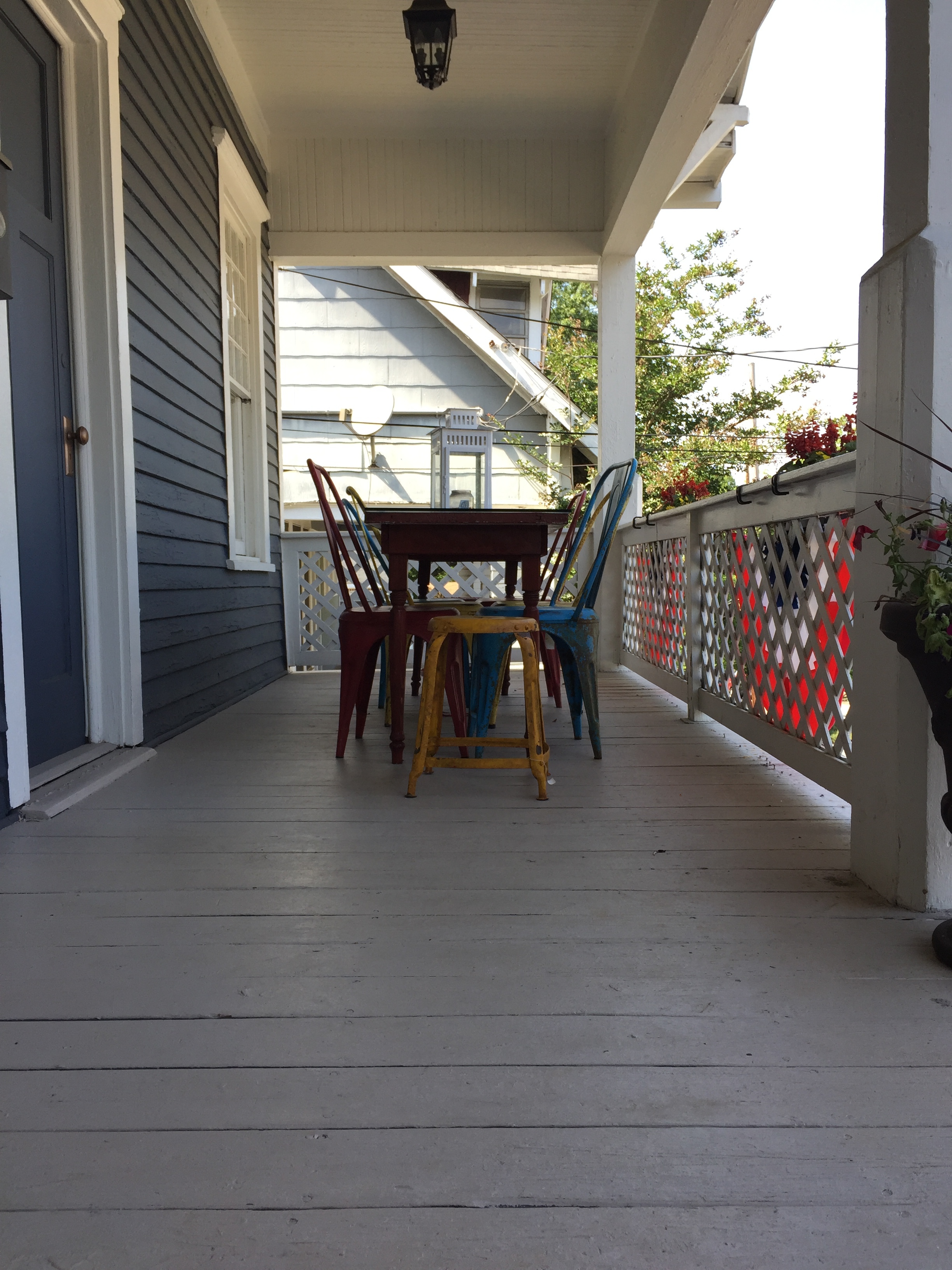
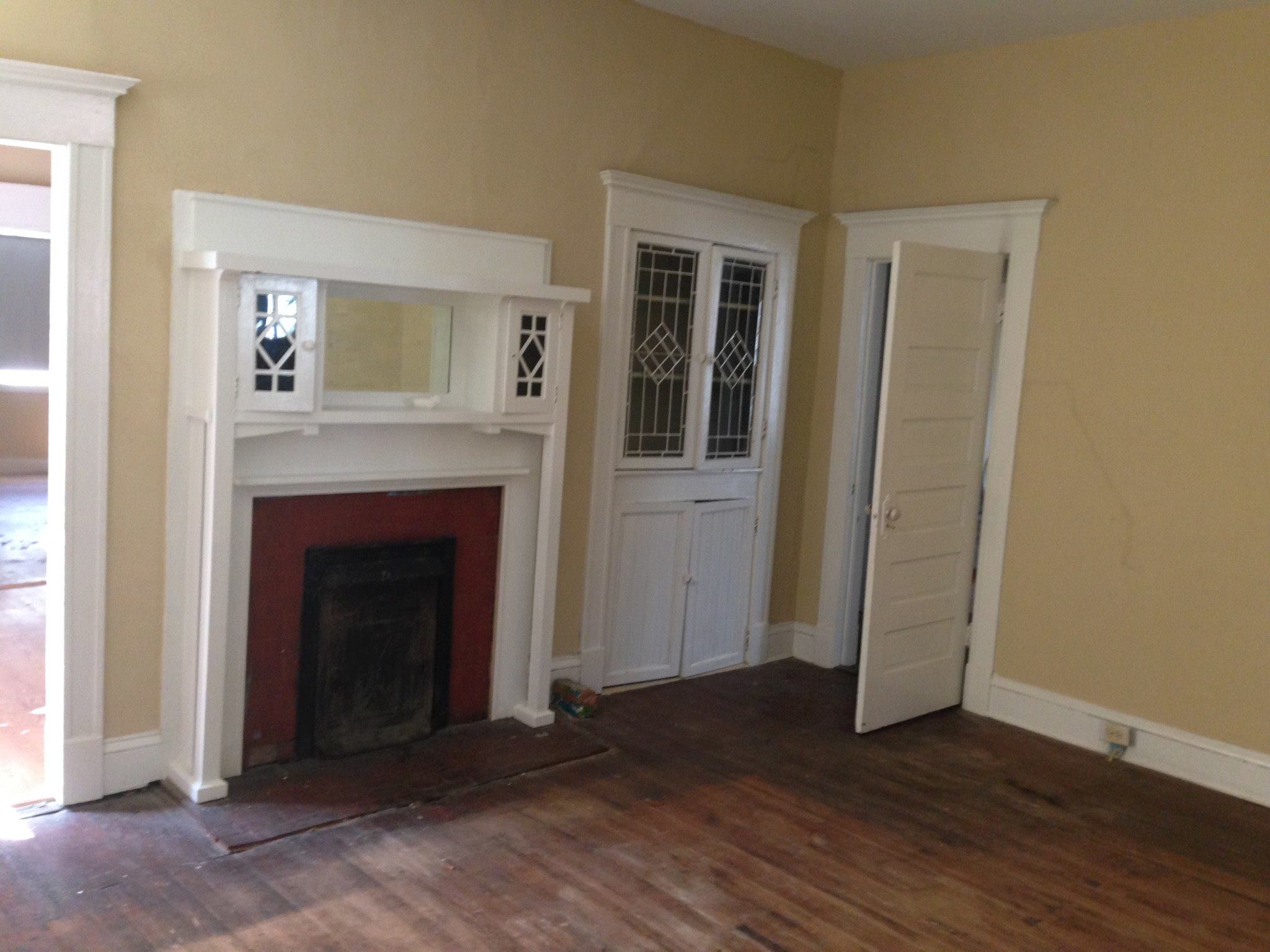
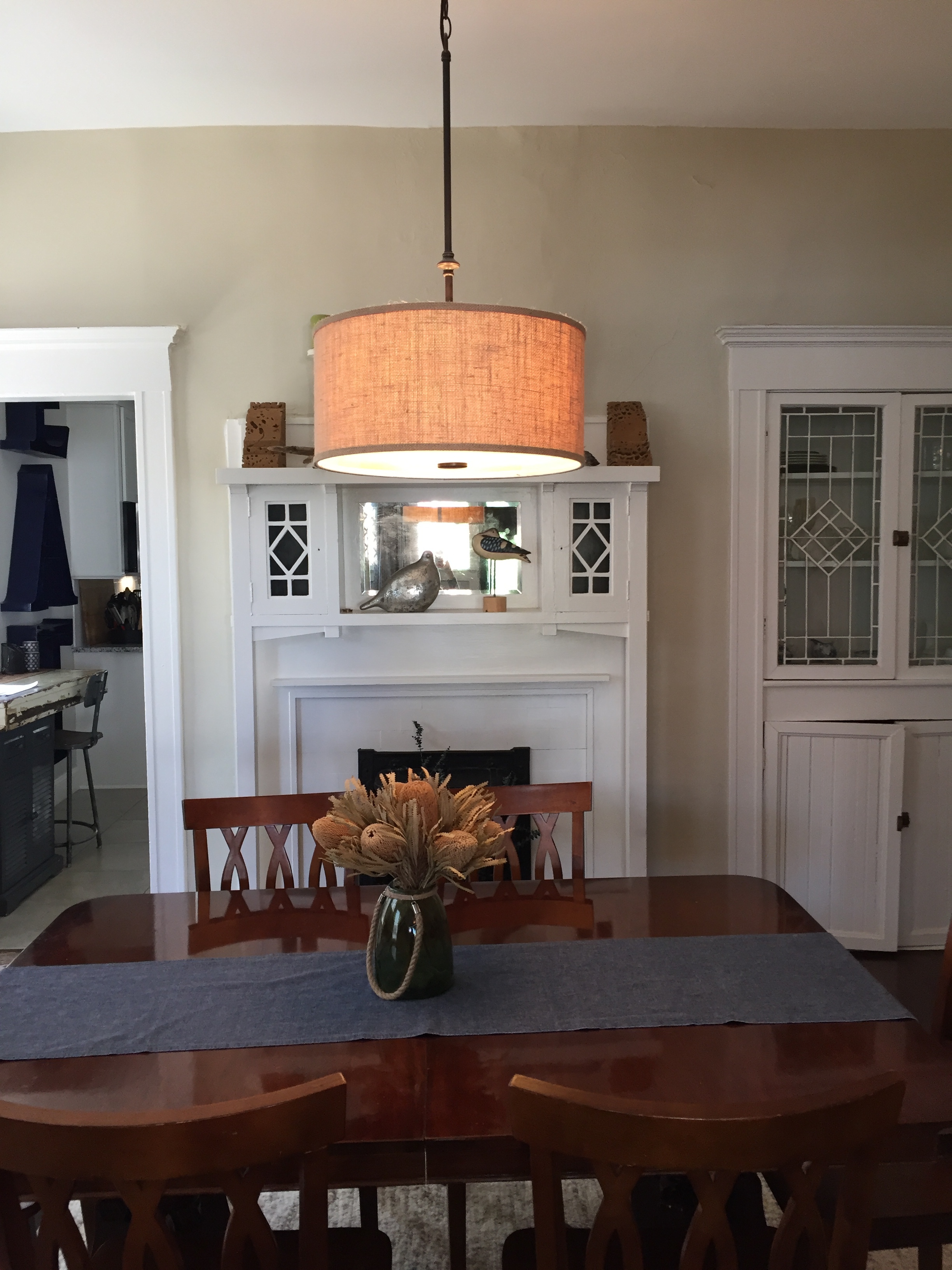
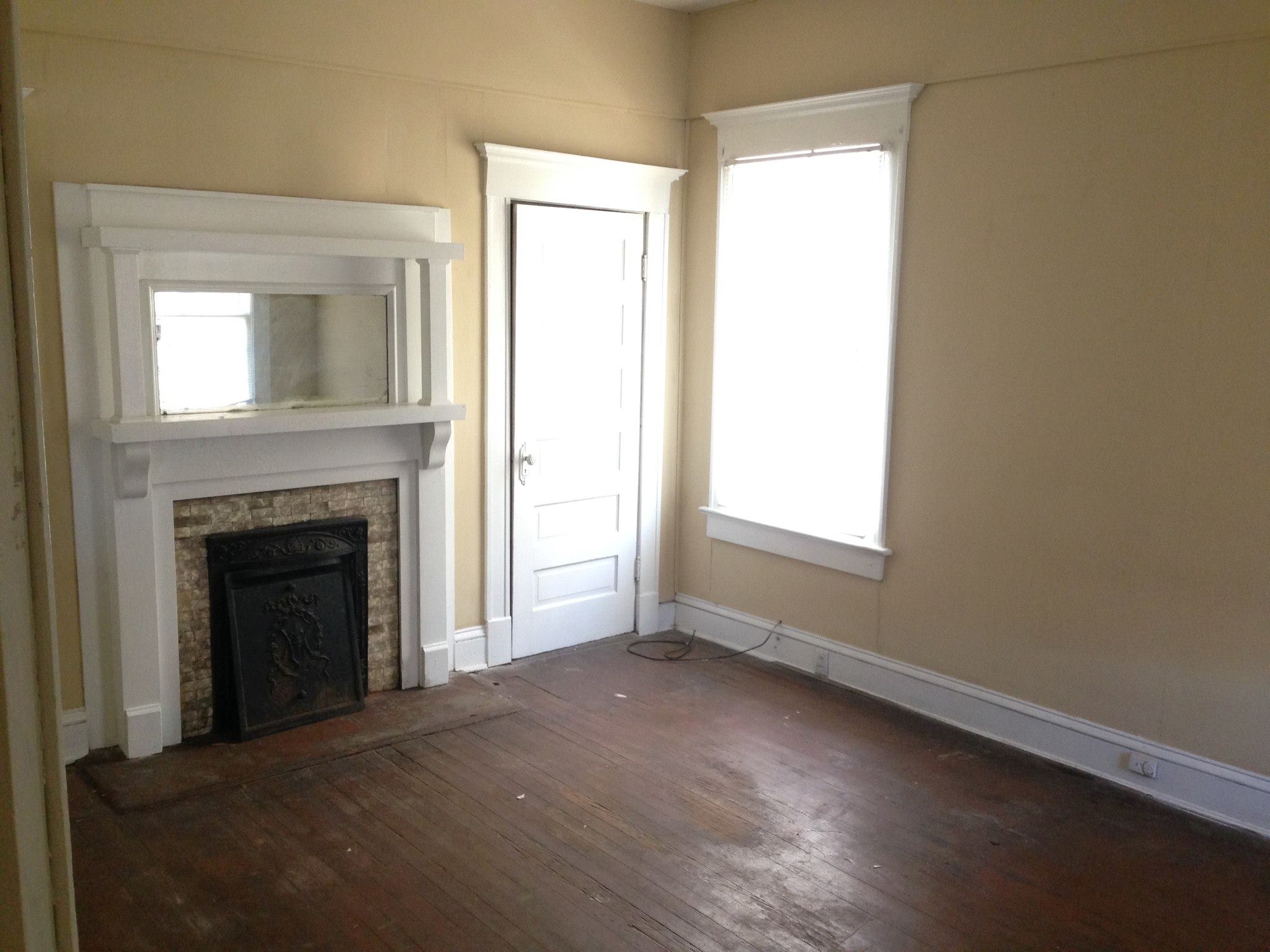
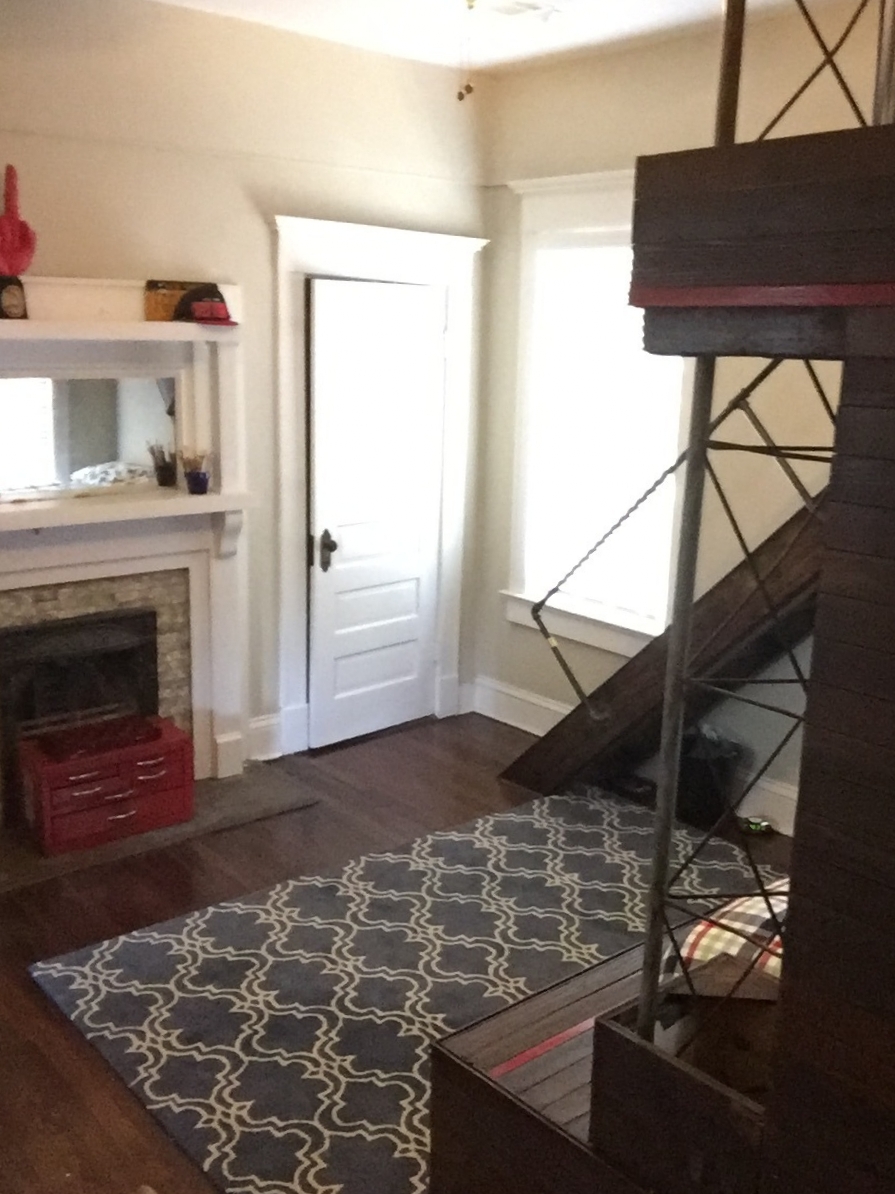
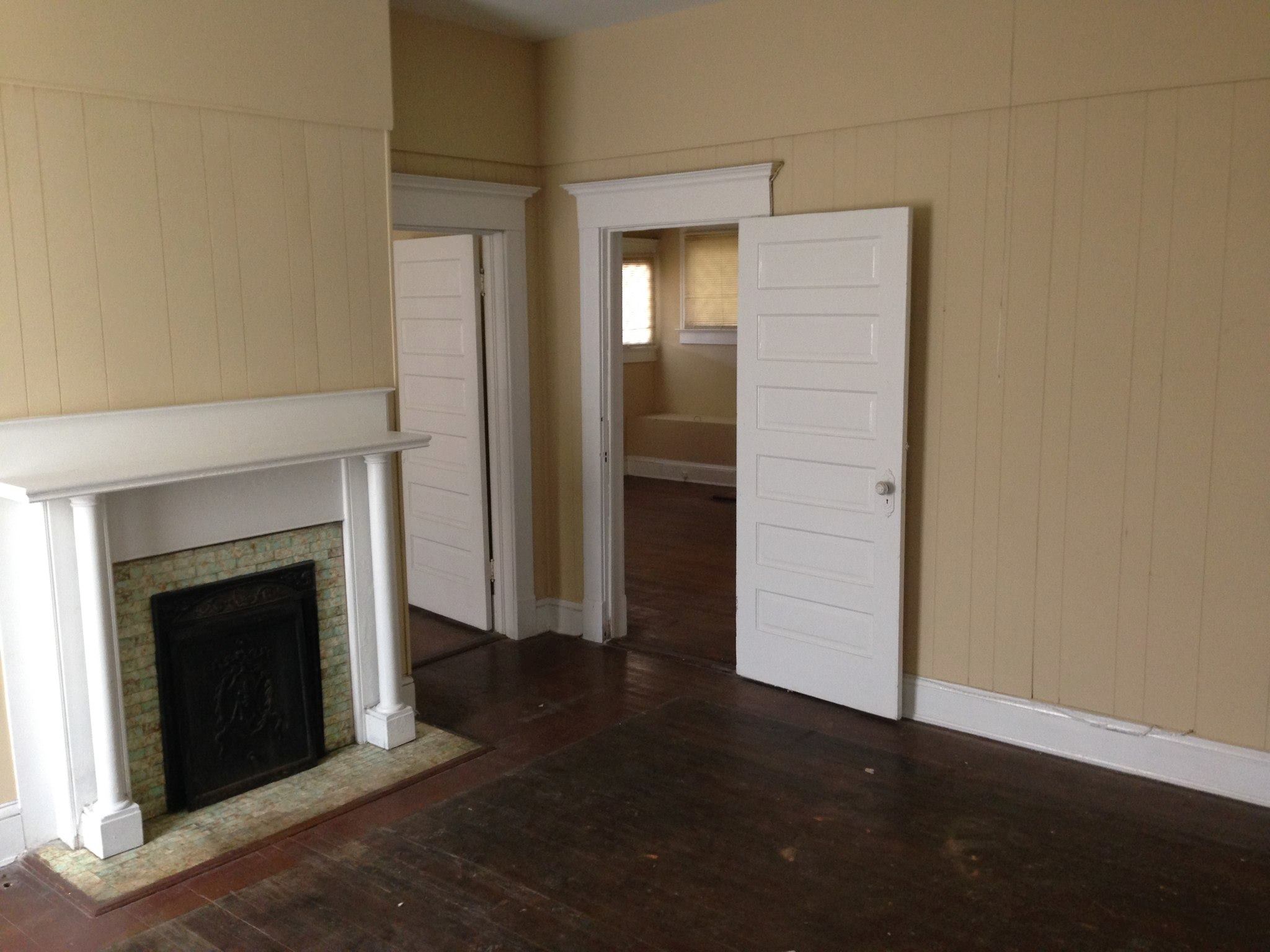
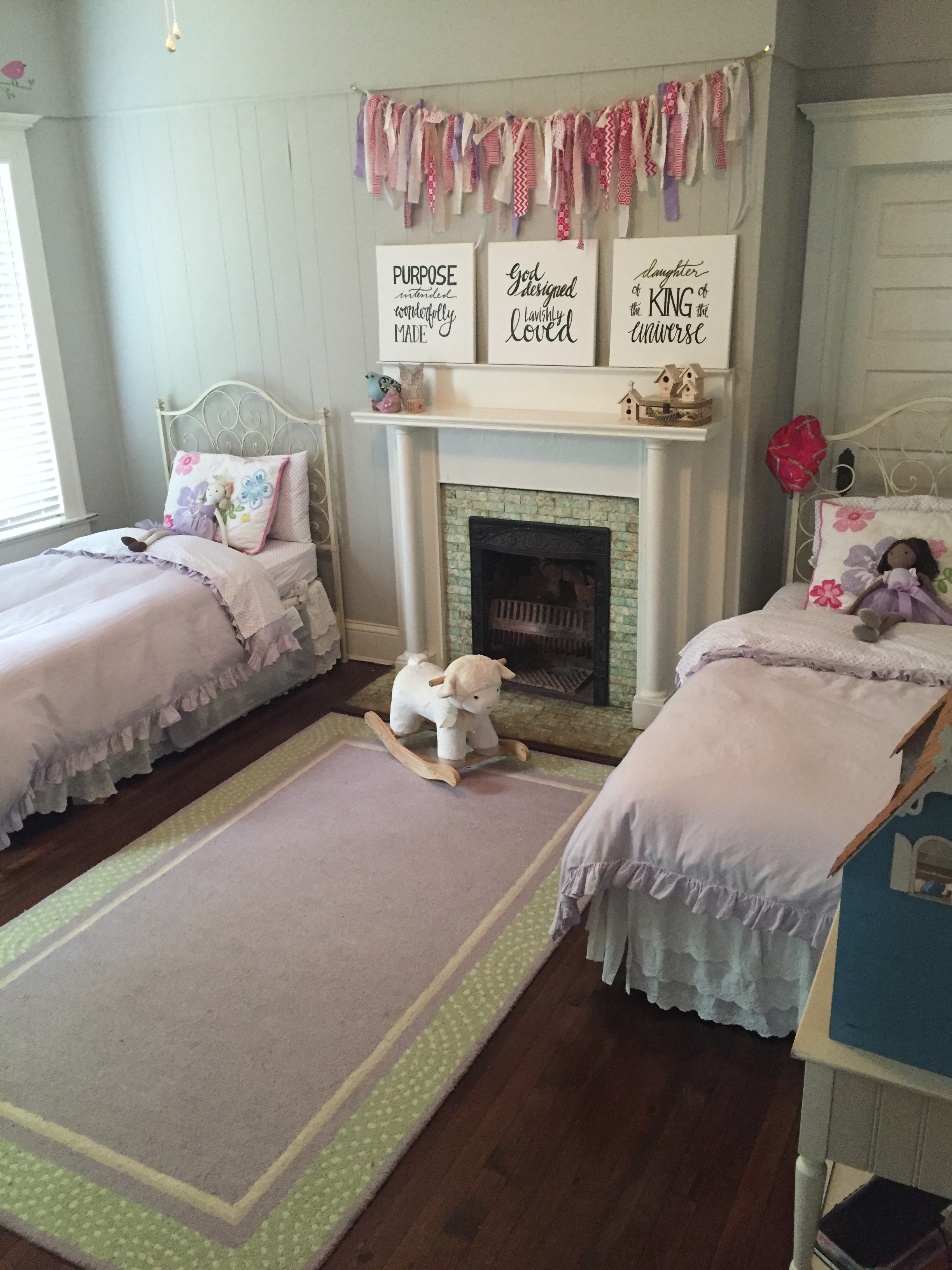
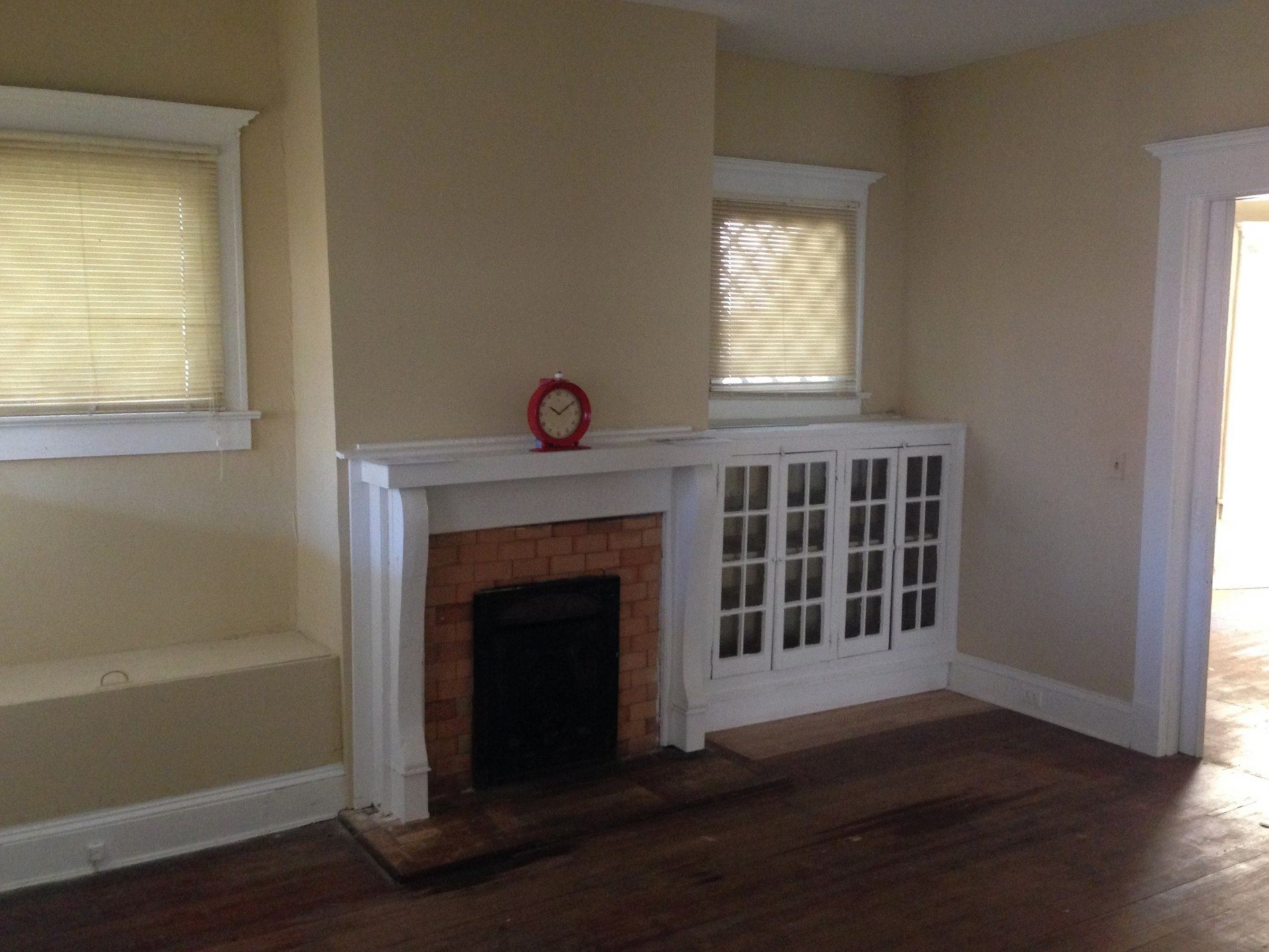
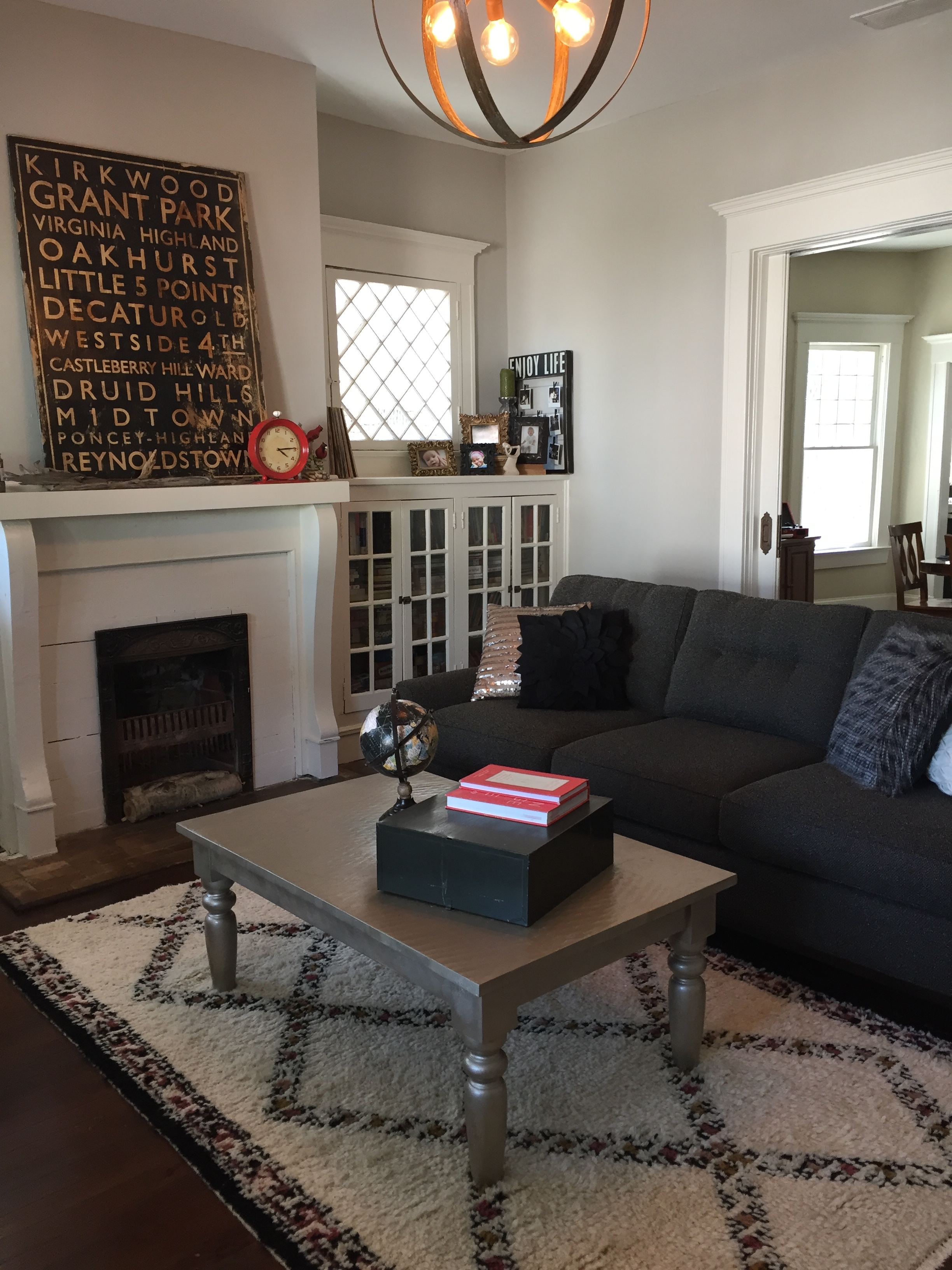
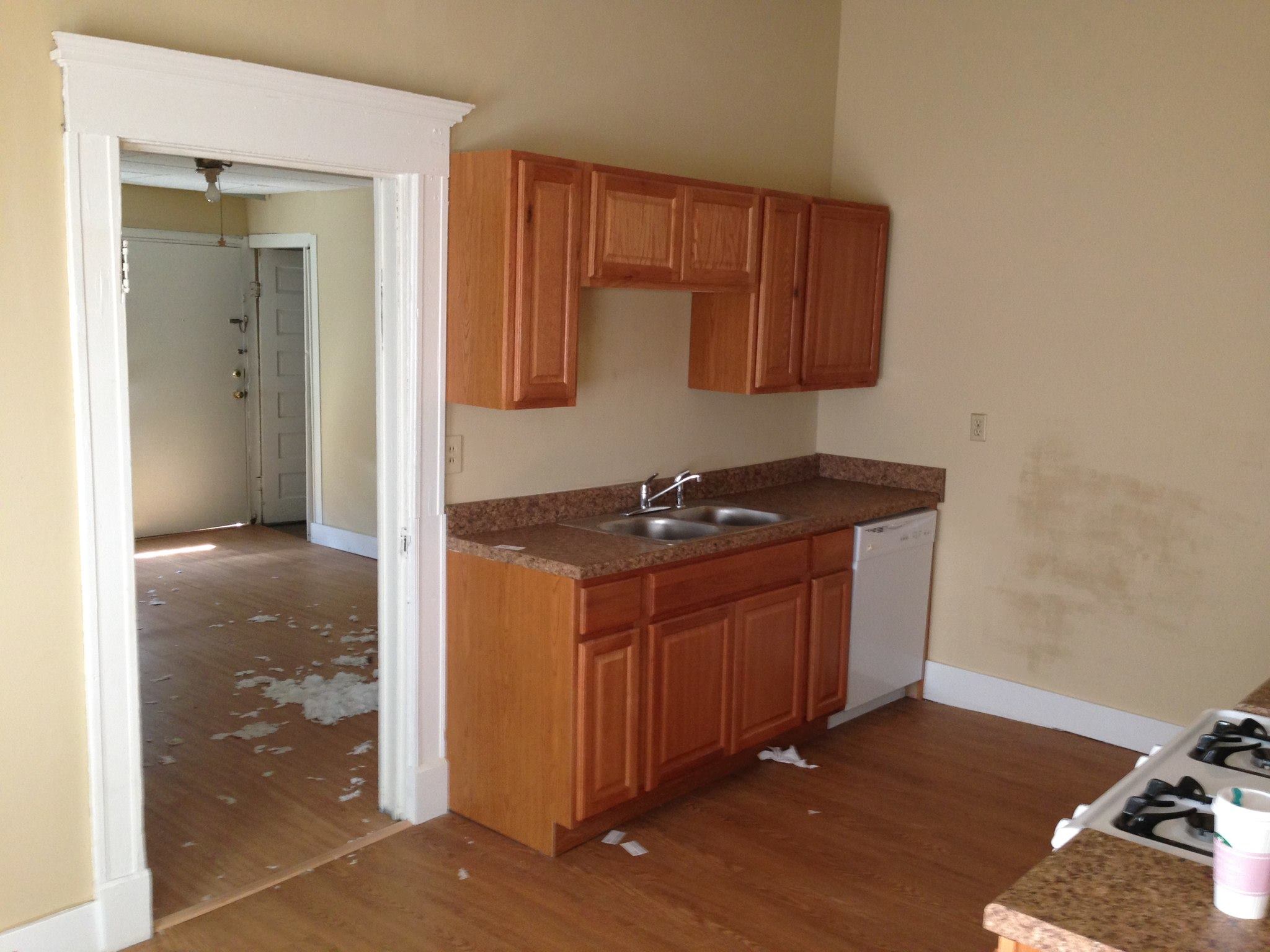
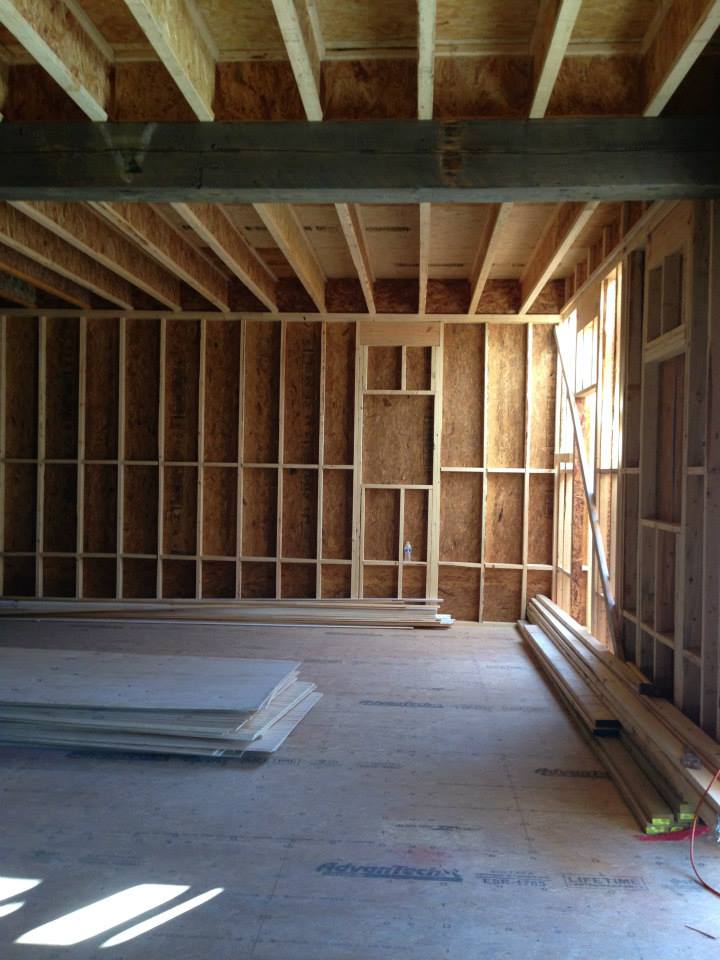
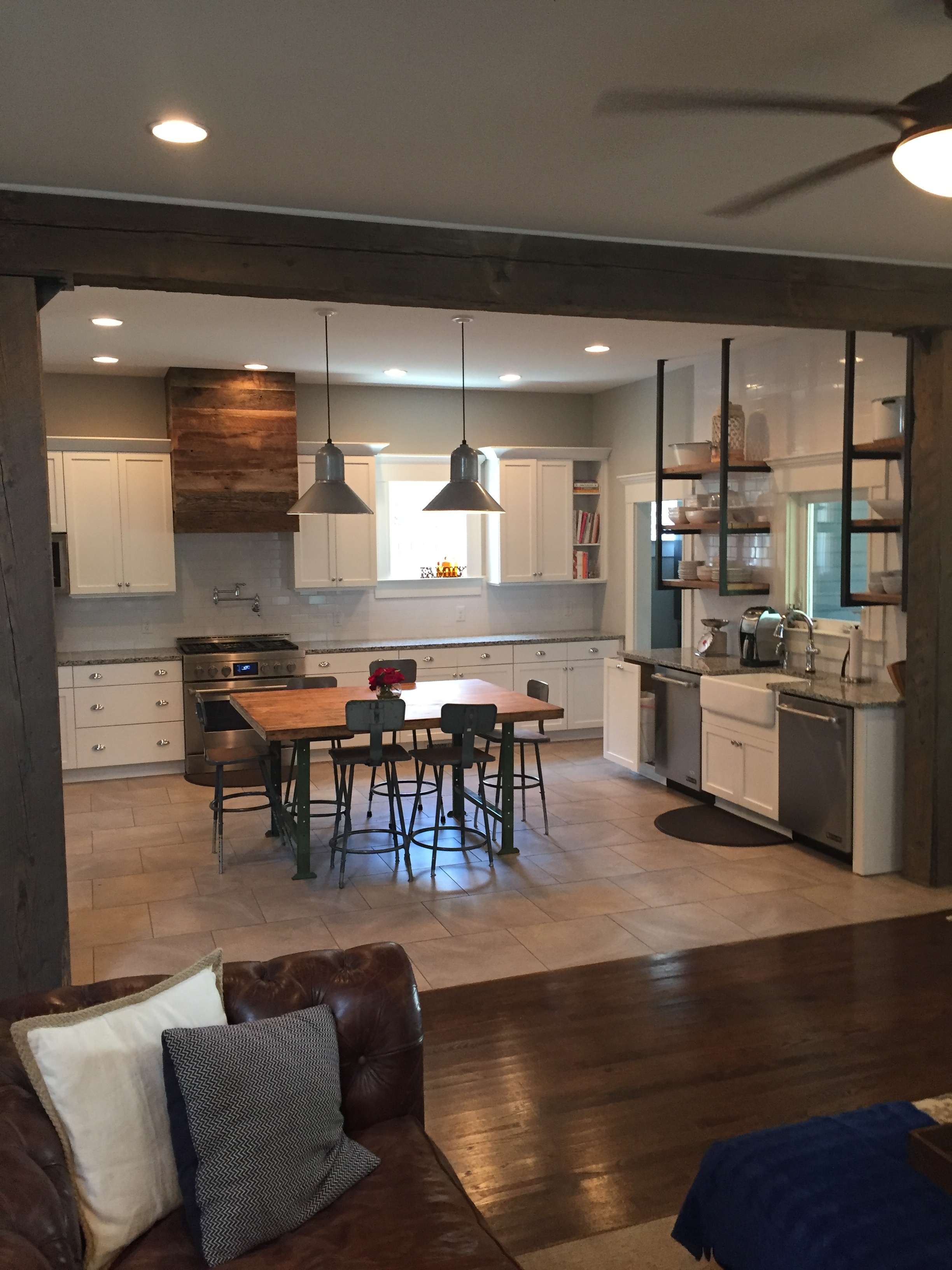
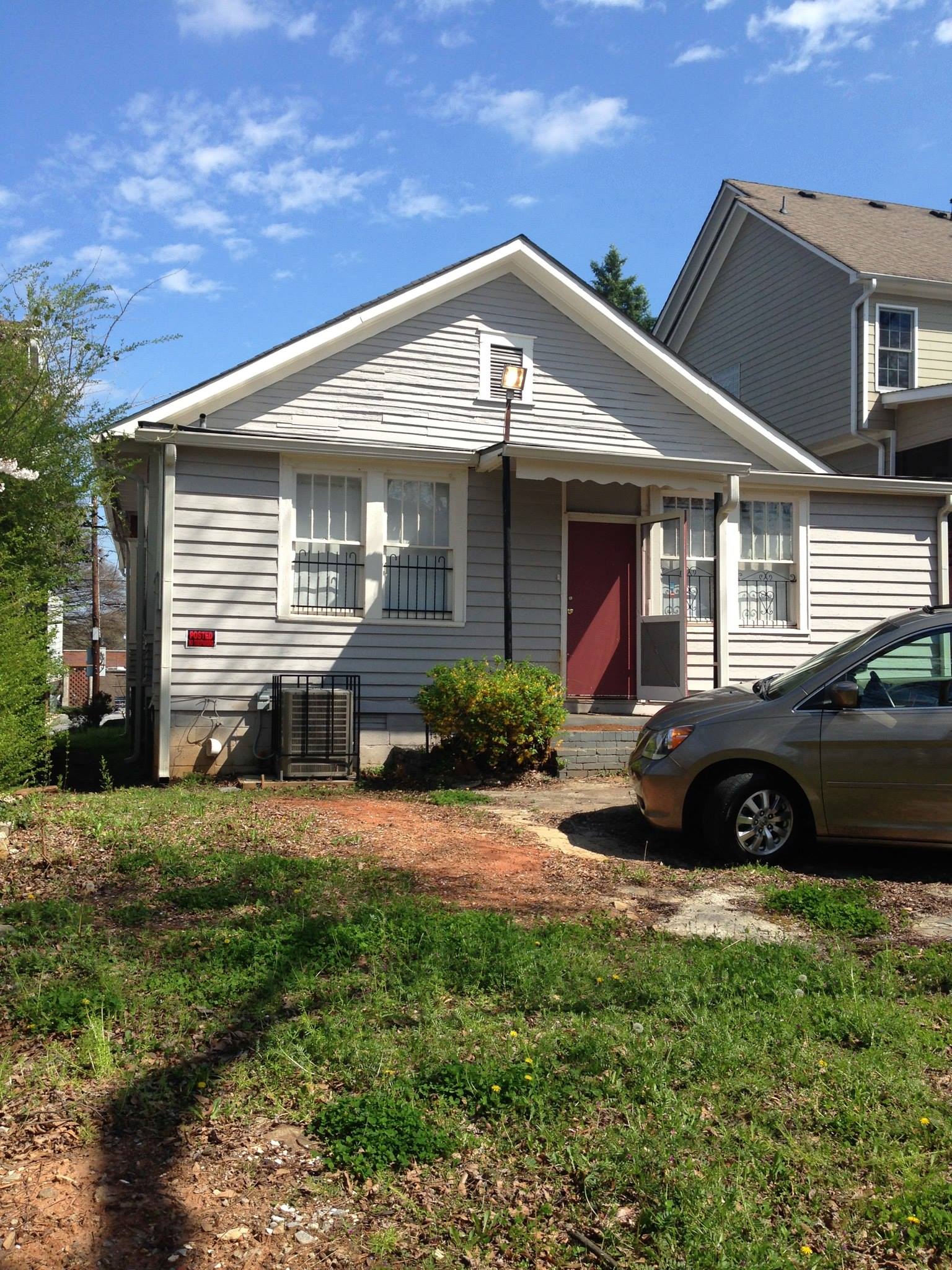
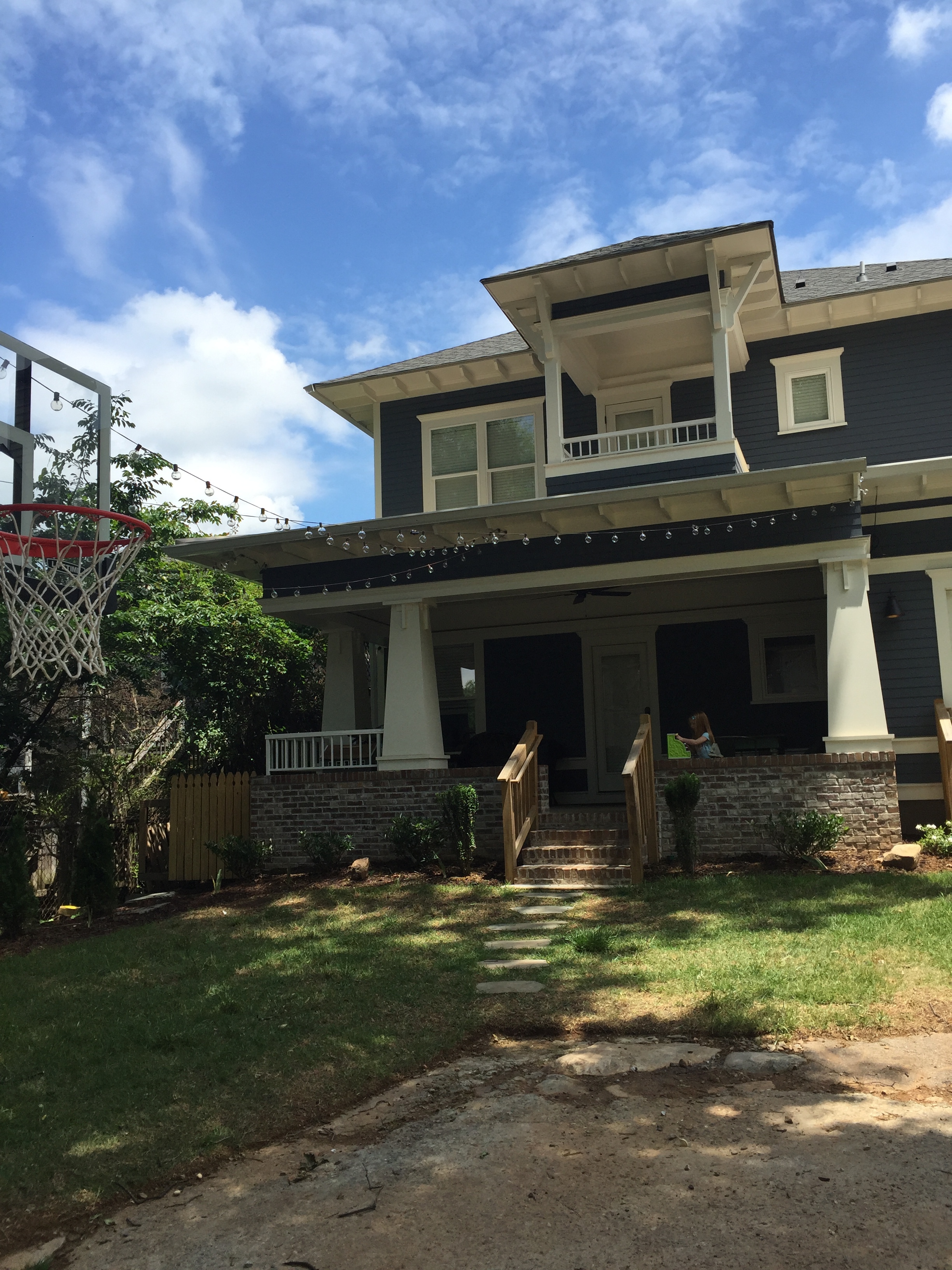
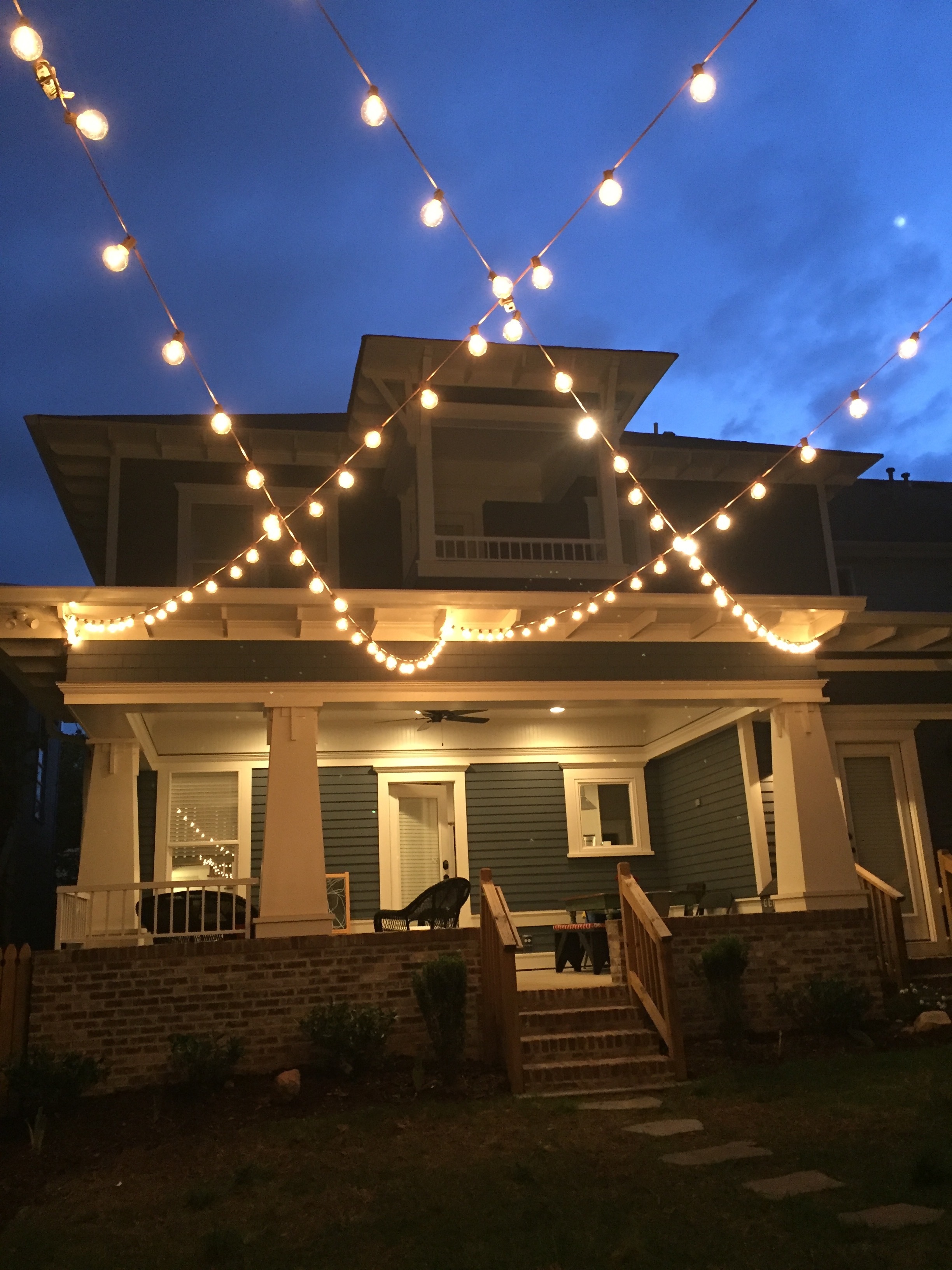
“In my opinion, buying a fixer upper is the best of both worlds; Honoring the stories that have come before me and laying new foundations for the future.”
Q&A with Carmen
1. Why did you pick the Midtown neighborhood to move into?
We picked Midtown because of walk-ability & schools. We hardly ever drive to a date night. There are so many restaurants, coffee shops, a movie theater, parks, frozen yogurt places we walk to on a daily basis. Plus I LOVE being around lots of old, historical homes with character.
2. What is one piece of advice you would give to someone taking on a "Fixer upper"?
My advice to anyone considering taking on a fixer upper is to not live there during construction if at all possible. We stayed in a 1 bedroom apartment with a loft for 9 months while our house was in chaos. It was tight but totally worth it.
3. Was this this first renovation project you and your husband have taken on?
This was definitely the biggest project we had ever done, but previously we had gutted a kitchen & bathroom using a contractor. (Who over charged us & we naively paid but we learned lessons that better prepared us for this time around.) Live & learn, right?
4. How did going through this project help you as a real estate agent?
If I am showing clients a house that is under priced for its location, I see potential. If there is room to make improvements and not price yourself out of the neighborhood, it's a wise investment. It's hard but totally worth it!
"Books run out of pages and songs run out of minutes. But the story of the city never ends..." - Aaron Fortner
“Stories organize our perceptions of the people, places, and events around us. Stories inform us emotionally, which is why we remember them better than mere information. They are among the most powerful means of human communication, education, and inspiration, precisely because they overlap in our minds with our ways of making sense of other people.” - Chris Malone and Susan T. Fiske, The Human Brand
Cities are the world’s greatest stories. Books run out of pages and songs run out of minutes. But the story of the city never ends. It goes on and on, every generation a new chapter to an endless story.
What I love most about the city story, however, is the opportunity to get into it. We are typically external to great stories, outside observers with brief encounters. But the city story invites you to get inside, up close and personal, and, should you so choose, to come and write the next chapter.
“What I love most about the city story , however, is the opportunity to get into it”
I’ll never get to go back and be a part of the story of the freedom fighters that began the Civil Rights movement in the 1960s. But I can choose to live in Dr. King’s Old Fourth Ward neighborhood today and become part of the current chapter of the story of redemption, equality, and communion playing out on the streets of his community. I’ve never been in any of the past chapters of the story of Detroit, but I can become rooted in the new chapter of renaissance and renewal that is the ongoing story of this industrious city. I’ll never know what it was like in Frank Sinatra’s New York, but I can join in today and find my place in a brand new chapter of the story of America’s First City.
It is the power of story that makes every city an exciting endeavor. The cities with great stories present a privileged opportunity for us to graft our own lives into the fabric of an unbelievably compelling story. And the cities with regrettable stories are the perfect stages for a new generation of heroes to emerge and to lead the way into a brand new chapter of discovery and redemption.
I hope you agree with me – that we are all attracted to dynamic stories and that ultimately our cities are the world’s greatest stories. And if you do agree, I hope you will further commit to finding the neighborhood in your city that gives you the best opportunity to leverage your passions and capabilities so that the greatest possible story can be told.
“And the cities with regrettable stories are the perfect stages for a new generation of heroes to emerge and to lead the way into a brand new chapter of discovery and redemption.”
It is my sincerest hope that you and I will live in such a place and in such a way that best enables us to give our city its beautiful stories. Redemptive stories – making right what once was wrong. Heritage stories – celebrating the legacy of good people who have come before. Human stories – affirming the value and dignity of all people. And visionary stories – providing compelling visions for a better future.
Let’s be storydwellers!
-Aaron Fortner
Q & A with Aaron
1. Where did your passion and vision for "story-dwelling" come from? Was there a certain city or experience that launched you into this idea?
I’m a City Planner and through my work I’m always working with different communities to map out a vision for their future. I started to realize that so much of our planning for the future is aimed at trying to keep up with other areas. The BeltLine is a good example of this. Now that the paths and trails of the BeltLine are built and are successful, there are many other communities that want to catch up and integrate the same types of systems. And that is a great thing. But what I find to be more interesting and more important for long term success is when a community can identify that which make them truly different from the competition. So in my work we call this Keeping Up and Standing Out. Every community should be keeping up with the basic quality of life offerings that other communities have. But we can’t stop there. Communities need to find ways to stand out. So now for me, whether it is in the work I do or just the community I live in, I am passionate about finding the unique story of a place that gives a sense of value and uniqueness.
2. In the context of Atlanta, we as a city are growing and changing so much right now. What advice and encouragement do you have for those moving into new neighborhoods and learning a new story?
Embrace the uniqueness of your neighborhood. I love that there are so many different neighborhoods in Atlanta, each with their own unique history, identity, and character. The worst thing we could do is to try to import a story that works perfectly in one place into some place else. There are some basic quality of life concepts like safe and walkable streets, proximity to basic goods and services, diversity in mobility and housing opportunities, and accesible open spaces that every community should have throughout the city. Let’s definitely learn from those and make them available wherever we can. But the character and soul of a community should be different from place to place. The unique identity should be a true story, rooted in the authenticity of the local context. Identity and story are not hype, not propaganda, and not slick marketing. They are just great and compelling true stories that are lifted up by the community. So please, let’s all work towards finding the good stories of a community and let’s lift them up, reinforce them, and find ways to keep telling these stories for future generations.
3. This quote is amazing : "It is the power of story that makes every city an exciting endeavor" . What are you most excited about for the story of the city of Atlanta?
I’m excited about the areas of Atlanta that are embracing their unique story. Buford Highway runs through Brookhaven, Chamblee, and Doraville and it is becoming Atlanta’s foodie destination. What was just 25 years ago a suburban highway lined with national chains has become restaurants, cafes, bakeries, ice cream shops, and all kinds of eateries that have been started by people from literally all over the world. The food is amazing and the people behind it all are the exact kinds of people that every dynamic community needs – entrepreneurs! The Buford Highway communities are leveraging this identity to continue to make this place a truly unique destination within the Atlanta region. I’m also excited about the upcoming $3B of investment in transit that the City of Atlanta is about to make which will enable the neighborhoods of the city to continue to write new stories that have never been written before.
Recent Posts
Blog Archive
- November 2020
- October 2020
- September 2020
- February 2020
- January 2020
- October 2018
- August 2018
- July 2018
- May 2018
- April 2018
- November 2017
- October 2017
- September 2017
- August 2017
- July 2017
- June 2017
- May 2017
- April 2017
- March 2017
- February 2017
- January 2017
- December 2016
- November 2016
- October 2016
- September 2016
- August 2016
- July 2016
- June 2016
- May 2016
- April 2016
- March 2016
- February 2016
- January 2016
- December 2015










